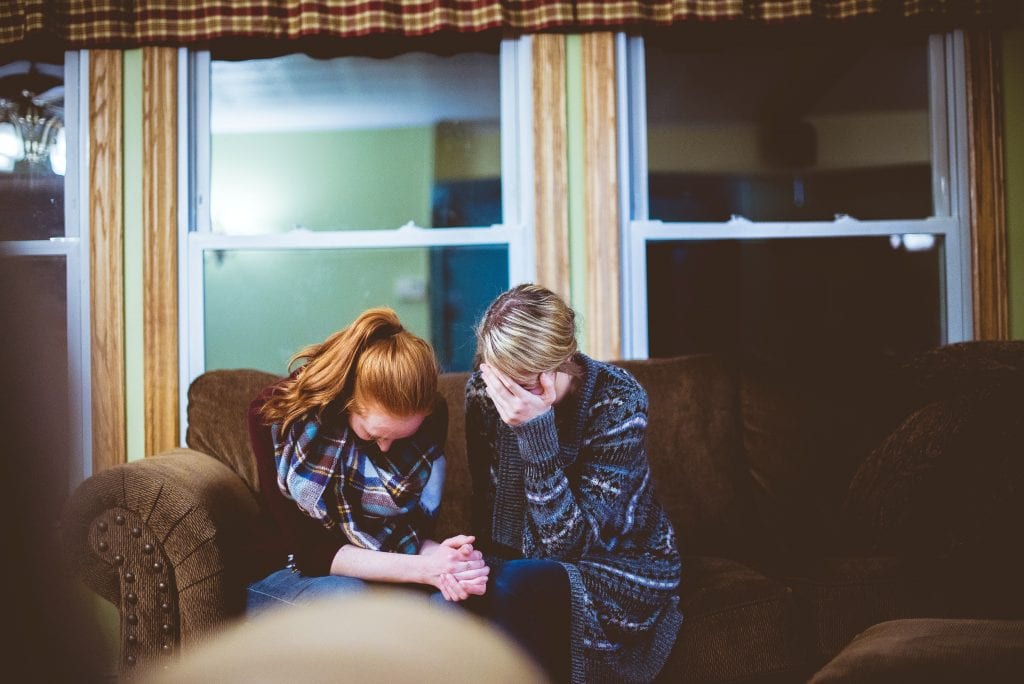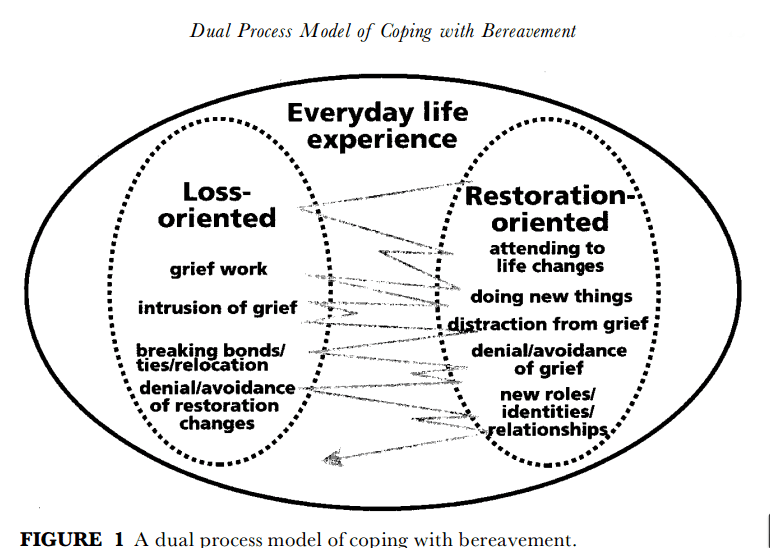
Most people will experience loss at some point in their lives. Grief is a reaction to loss and bereavement is a type of grief involving the death of a loved one. The process of grieving is different for every individual. Certain factors such as beliefs, values and personality play a huge part in how a person mourns. Sometimes the pain associated with grief is too much and a person cannot cope with this on their own. This is when a counsellor can help them go through all the emotions and phases of grieving.
What is grief counselling?
It is a form of psychotherapy designed to work with uncomplicated grief. It helps people cope with mental, physical, emotional, social, and spiritual responses to loss. These responses are often followed by death of a loved one or other significant losses such as relationships, job, health, youth, home foreclosures etc. A grieving person benefits from the support of others, where such support is lacking from friends and family, counselling can provide an avenue for healthy resolution. Its important to note that grieving is not instant and can occur after months and years post-incident. Grieving process is interrupted when the person must deal with practical issues such as staying strong for the family and worrying about finances. In such cases, grief can remain unsolved and resurface later and this can be explored and worked on with the help of counsellors.
What is grief therapy?
There is a difference between grief therapy and counselling. Counselling involves helping people move through uncomplicated or normal grief that a person experiences after a loss. However, grief therapy is for complicated, traumatic responses to losses. A response to grief is complicated when its prolonged and manifests itself through mind and body, or a response that is not defined as normal. People with complicated grief experience psychosomatic disturbances, delayed and unexpected mourning. Complicated grief can be triggered by natural disasters and/or a sudden traumatic death. Disorders are associated with “problem” grieving such as depression, anxiety, PTSD, and substance abuse (addictions).
Grief cannot be resolved rather it is integrated into our lives. People can learn and grow from their experiences; their existing values and beliefs assist in the process which normalises their emotions. But it may also deteriorate quality of life such as diagnoses of other mental disorders that were triggered by grief and loss. Overall grief can have long-term effects, both negative and positive, how a person reacts to it determines the outcome.
What happens when you are grieving?
It is not only feeling sad over your loss. It involves guilt, yearning, anger, regret among other intense emotions. The process of grieving varies according to the situation. For example, a person may feel intense anger and guilt over a relationship that ended, compared to another person who is mourning the loss of a loved one who died of cancer but is relieved that the person is no longer suffering. The way they behave also differs, some people share feelings and find comfort, while others prefer to stay alone and process their feelings.
Initially, people try to make sense of what has happened, and they bounce between different thoughts and feelings. For example, they think “It was her time to go” but the next moment they are thinking “she was too young to die” or “I wish I could have done something to stop this”.
Grieving behaviours are categorized into two styles: instrumental and intuitive. Most people experience both while dealing with loss. The primary focus of instrumental grieving is problem solving. The person minimizes emotional expressions/feelings and focuses on other things such as planning a funeral, financial checks, closing bank accounts, managing commitments etc. On the other hand, intuitive grieving is a heightened emotional experience. During this, a person shares and explores feelings related to the lost person and mortality.
Internal influences on grieving
- Age – Children and adults process loss differently
- Gender – men tend to be more instrumental grievers compared to women who tend to be intuitive.
- Culture – in every culture, ways of living and expressing emotions is already set and deviating from them would be considered abnormal.
- Coping behaviours – individuals engage in healthy behaviour such as rationalizing and seeking support. Alternatively, they could turn to addictive behaviours such as using drugs and alcohol for comfort.
- Spiritual/religious beliefs – religion can be used as a positive coping mechanism with elements such as forgiveness and the deceased being in a better place. Alternatively, people can also blame God for their loss, lose faith and become angry.
- Previous mental health – cognitive capacity and complicated disabilities play a part in how a person grieves.
External factors that affect grieving:
- Family context – family can assist mourning by supporting the individual. Styles of grieving, role allocation, locus of control and values is determined by the family.
- Concurrent stress – sometimes a person faces loss after loss and each of them requires their own grieving process.
- Social support – a person’s network, general community and people who were professionally involved (i.e., doctors) have a strong influence on a grieving person.
If you have recently experienced loss and are struggling to manage your emotions, or if you believe you are experiencing complicated grief, reach out to the counsellors at Halcyon and start your journey to fulfilment today!
Understanding the mourning process
Tasks of Mourning – Worden (1991) described each part of the journey in terms of what they saw people doing, rather than feeling.
- To accept the reality of loss.
- To process the pain of grief.
- To adjust in a world without the deceased.
- To find an enduring connection with the deceased in the midst of embarking on a new life.
The Dual Process Model – Strobe & Schut (1999) explained the process of bereavement in their dual process model. The model states that the grieving process in non-linear and an individual goes back and forth to loss-oriented and restoration-oriented stressors (figure 1).

What to do when grieving:
- Self-care – seek counselling, engage in meditating, journaling and reach out to friends and family. Do not ignore feelings and thoughts associated with them, share with others and explore what this means for you.
- Meaning making – Using narratives and life stories to reconstruct meaning. This means that when a person passes, their loved ones have to re-define the world without them in it, and re-learn ways to continue living happily.
- Continuing bonds – Individuals who maintain healthy attachments with the deceased are more likely to accept reality and experience normal life again. For example, children who think that their parents are looking over them even if they are not physically present.
We offer counselling on the sunshine coast If this is something that you need help with, do not hesitate and book a session with a counsellor at halcyon.

Recent Comments